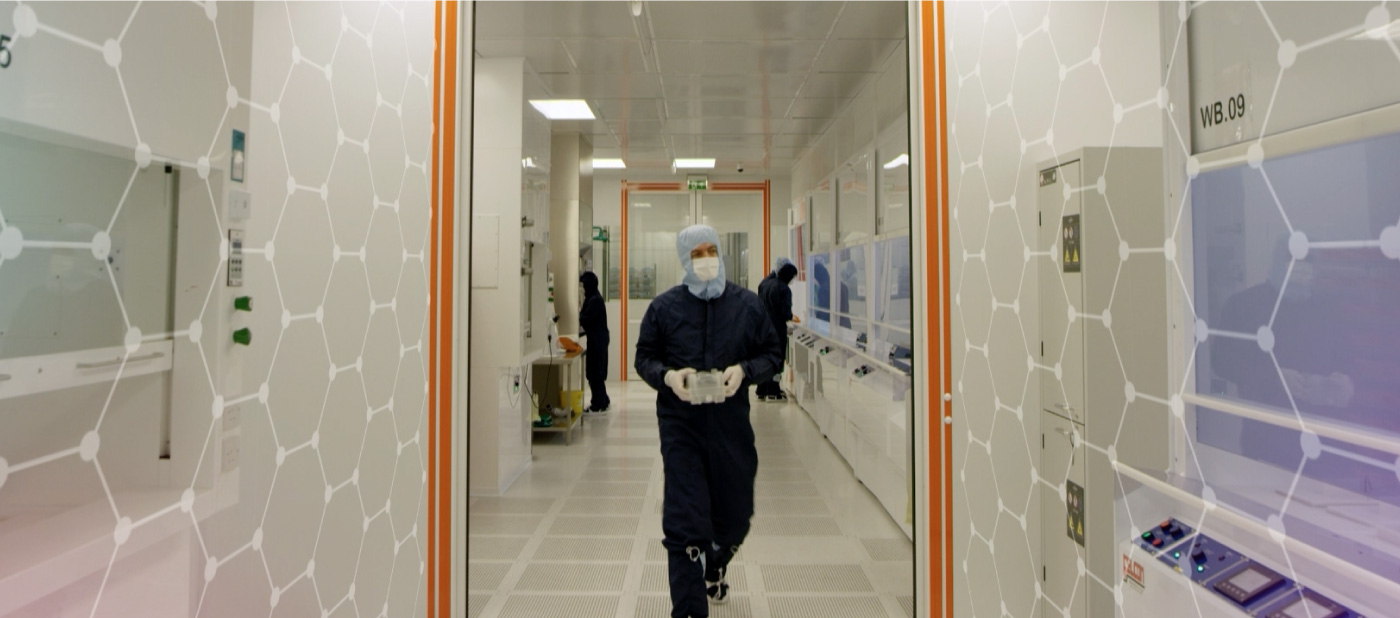The Henry Royce Institute for advanced materials has welcomed the creation of a new UK Semiconductor Institute, which aims to support the Government’s £1bn strategy to grow the sector.
Tasked with promoting the sector to investors, the Institute will act as a coordinated entry point for technology businesses who want to work with the UK semiconductor ecosystem to boost innovation, research and commercialisation. The Institute will be established as an independent organisation and ensure both academic researchers and industry have the tools and infrastructure needed to deliver market-ready products.
Through its ‘Atoms to Devices’ Research Theme, Royce is part of the UK’s established world- leading semiconductor materials research base, working in partnership with industry to develop materials solutions that will deliver the next generation of efficient electronic devices and components. Semiconductor research in this area is helping to address key challenges such as the Government’s target of net-zero carbon emissions by 2050, but importantly also supporting other national priorities and critical technology areas outlined in the Government’s Science and Technology Framework including quantum technologies, future telecommunications and healthcare.
Professor Edmund Linfield, Royce Atoms to Devices Research Area Lead, and Director of the Bragg Centre for Materials Research at the University of Leeds said:
“I was delighted to be part of the Department of Science Innovation and Technology-commissioned IfM UK Semiconductor Infrastructure Initiative study, and this subsequent announcement of the creation of a UK Semiconductor Institute is very welcome.
“The Institute is a positive development which will fit well with Royce’s investment in state-of-the-art facilities at the Universities of Cambridge, Imperial, Leeds and Manchester, as well as recent investment in Swansea. It also aligns with our fantastic training course in Practical Cleanroom Skills and builds from our Roadmaps on Materials for the Energy Transition, taking forward many of the recommendations made by the UK materials community. We are very much looking forward to developing these activities further and supporting the establishment of the new Institute.”
Royce CEO Professor David Knowles added:
“We welcome the UK Semiconductor Institute as a very positive step in taking forward the UK’s Semiconductor Strategy, particularly the Institute’s proposed role in ensuring the UK continues to lead the way in developing the advanced materials required to manufacture new kinds of semiconductors at scale. It is critical that the ambition and activities of this new institute are reflected in the National Materials Innovation Strategy which is currently being developed.
“Initiatives which enable the UK materials science research community to accelerate dramatically the commercialisation of their research and innovation against our national imperatives are fully aligned with our endeavour. Royce stands ready to support the applied collaborative research programmes needed to accelerate the sector’s adoption of new materials, particularly to shorten the transition from lab-based innovation to volume manufacturing.”
Technology Minister Saqib Bhatti said:
“Semiconductors underpin all the technology that keeps our economy moving. Our strategy set out that we would grow the sector and make it resilient by focussing on what the British chip sector does best.
“Building on the early success of the strategy, the UK Semiconductor Institute will unify the semiconductor sector to focus our talented researchers on securing our status at the cutting edge of semiconductor science. This is a hugely significant milestone on our journey to becoming a science and tech superpower by 2030.”
Skills Pipeline
Building on a key focus of the Semiconductor Advisory Panel, the new Institute will also bring industry together to boost the specialist skills needed to help grow the sector.
Through its Partners at the Universities of Leeds and Cambridge, Royce has developed a ‘Practical Cleanroom Skills’ training course in conjunction with the Centre for Integrative Semiconductor Materials (CISM) at Swansea University. Delivered by Research Technical Professionals from the three universities, participants gain a fundamental understanding of working in semiconductor cleanrooms through a combination of taught lectures, discussion sessions and practical training.
The training allows researchers to experience device manufacturing and explore processing techniques, mirroring those used in industry, and develop highly transferrable skills. Individuals seeking careers in the semiconductor sector now, more than ever, need hands on experience and an understanding of the processes used in industry, and this training offer is set to expand.



